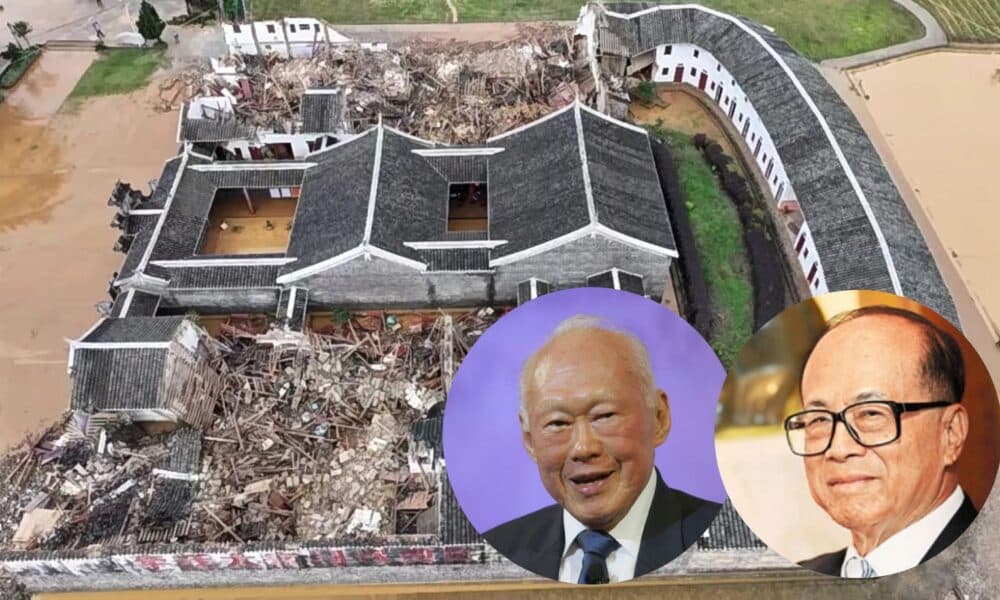FUJIAN, CHINA: A severe rainstorm has caused significant damage to the ancestral shrine of former Singapore Prime Minister Lee Kuan Yew and Hong Kong billionaire Li Ka-shing.
China state media reported that the Li’s Family Ancestral Hall experienced substantial structural collapse on the morning of 17 June, according to the shrine’s management committee. Fortunately, no casualties have been reported.
The shrine, known as “The First Hakka Ancestral Hall (客家第一祠),” is situated in Guantian Village, Shanghang County, Longyan City, Fujian Province.
Between 6 AM last Sunday and 6 AM on Monday (17 June), the area was hit by unprecedented heavy rainfall, breaking historical records for 24-hour rainfall.
At 2:40 AM on Monday, the east and west wings of the hall collapsed, affecting approximately 600 square meters of the structure.
However, the main hall remained largely intact.
Initial assessments from local authorities suggest that the collapse was caused by severe water saturation of the rammed earth walls, which weakened the structural integrity of the building.
Restoration efforts will adhere to the principle of “repairing the old as it was.”
Aerial photographs show that while the main hall and rear semicircular buildings remain relatively intact, the side wings suffered extensive collapse and remain submerged in water. According to the shrine’s staff, the local government has prioritized safety by cordoning off the area and preventing pedestrian access.
Valuable artefacts are still buried within the site, and efforts to clear the water are ongoing.
The staff also noted that the shrine had undergone extensive renovations last year, making the recent storm damage particularly unexpected.
Public records indicate that the Guantian Li Family Ancestral Hall (官田李氏大宗祠) was built in 1836 during the 16th year of Emperor Daoguang’s reign in the Qing Dynasty.
It was constructed by the descendants of Li Huode, the first ancestor to settle in Fujian.
The hall is the largest and best-preserved ancestral shrine in Fujian province. It holds significant cultural influence among the Hakka people both in China and overseas, earning the title “The First Hakka Ancestral Hall.”
Covering an area of over 5,600 square meters, the hall features three main rooms, 26 guest rooms, and 104 residential rooms.
The north-facing, south-oriented structure is made of brick and wood, with surrounding blue brick walls forming a square layout.
The front façade includes a five-arched gate, with the central arch constructed in a pagoda style using grey-blue stone slabs. The other four arches are symmetrically arranged with circular and ear-shaped doors.
In March 2013, the shrine was designated by China government as a national key cultural relic protection unit. In January 2015, it was listed as a national 3A-level tourist attraction.

